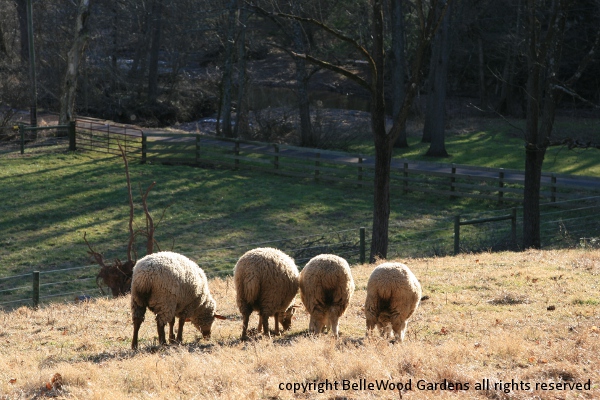
Friday, 11 January 2013
Georgia's Sheep
There's livestock to be seen hereabouts in Hunterdon County. Horses, of course. I know where there's a herd of black and white belted cows (but whether they're Belted Galway or Lakenvelder I couldn't say.) Goats. And a fair number of sheep. The neighbors catercorner across the road have a flock of Finn Dorset cross - apparently a few came with the house when they bought it and they had lambs and then there were more - and anyhow that's another story.
Another neighbor also across the road has been wanting to get some sheep. Georgia is very clear on what she wants: they should be a smaller breed as she doesn't want anything that might knock her over. Polled, no horns. And, most important, nice fleece. Because, you see, Georgia wants her sheep to provide fleece that she'll send out to be carded and spun into wool with which she'll knit. No one else in our Knit On Wednesday group gets this far back to basics. And this winter, after the pastures were fenced in, she bought her first four ewes.

There's Sweetpea and Ginger, they're the two Tunis ewes. The Dorsets are named Lambchop and Mouton.
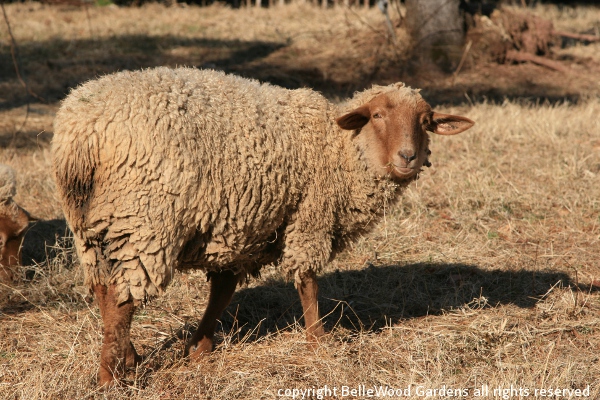
Two of the ewes are Tunis. They're not especially common but do have an historical pedigree. George Washington had the first ones in the United States. Lambs are born with a reddish coat that fades to ivory as they mature. But they keep their red faces and legs. Georgia's ewes will be brought to a registered Tunis ram for breeding. She'll look for a smaller ram, as she's breeding for fleece rather than meat and prefers sheep of a more modest size = easier to handle.
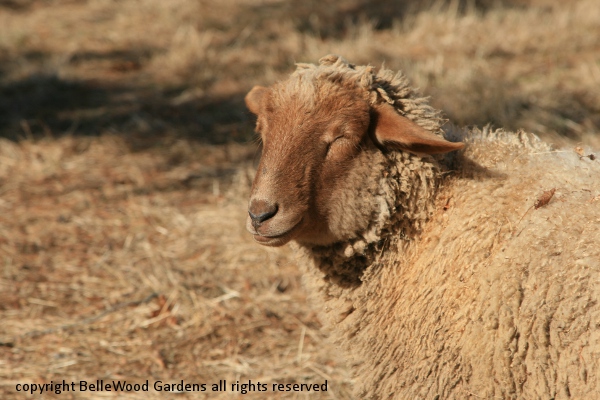
This is Sweetpea. Doesn't she have a sweet face. And cute ears too. Both ewes are quiet, came up and sniffed my hand.
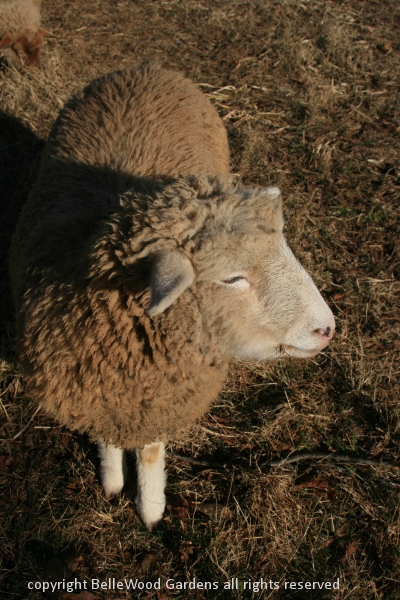
Lambchop is a charming Dorset ewe. All the ewes are polled, naturally without horns.
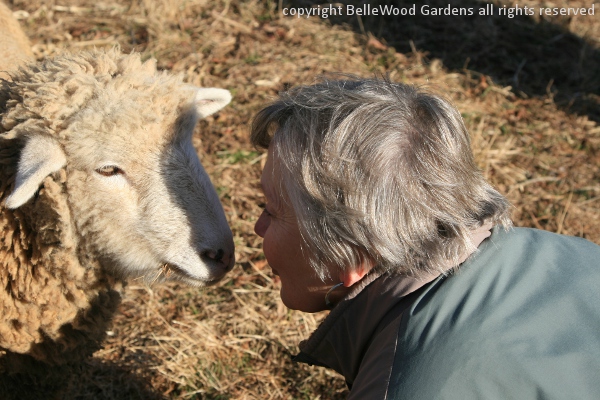
The ewes, some more than others, have all become friendlier since they arrived a few weeks ago.
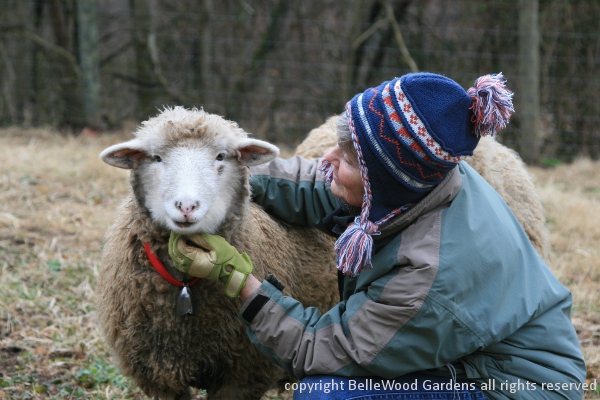
.
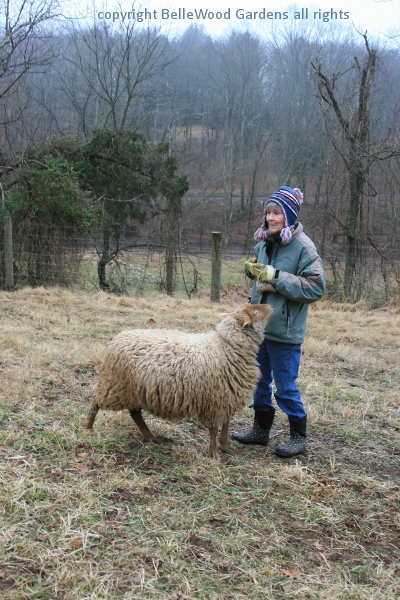
Do you think it might have something to do with the sheep treats Georgia carries in a baggie in her pocket?
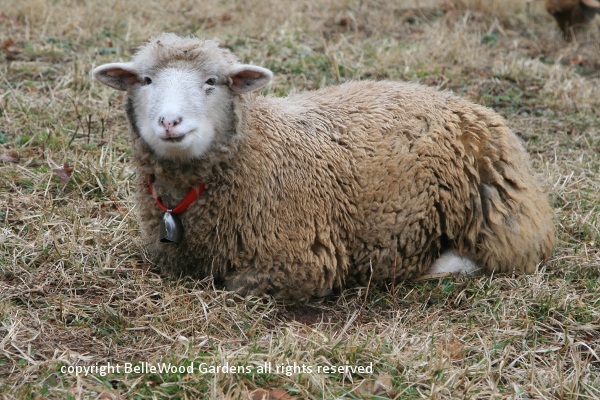
Lambchop, now sporting a snazzy red collar and a wind-chime-like bell lays down to chew her cud and think this over.